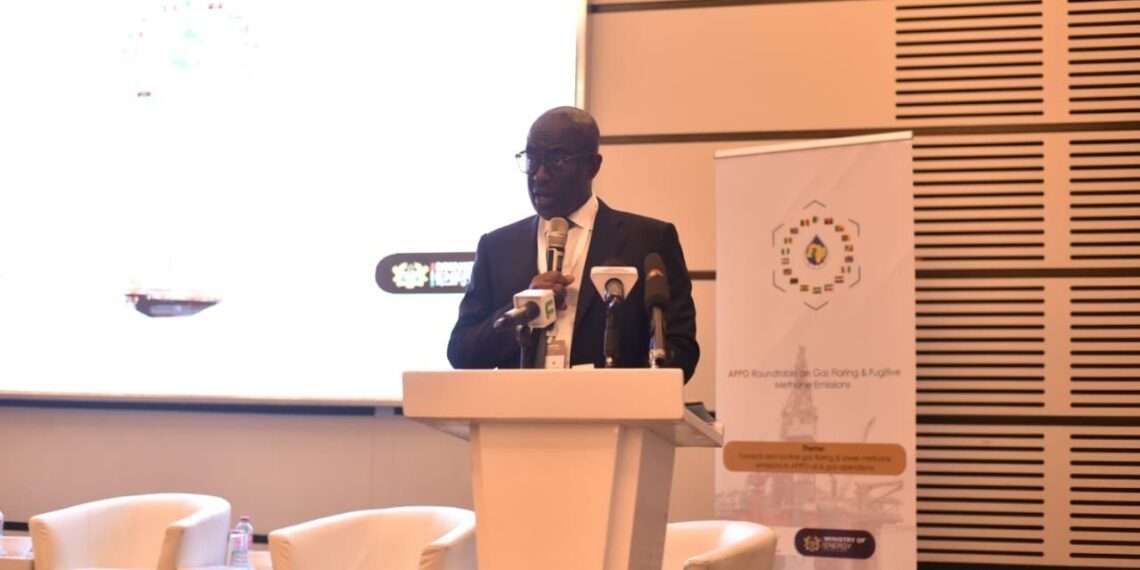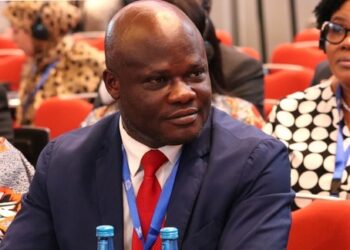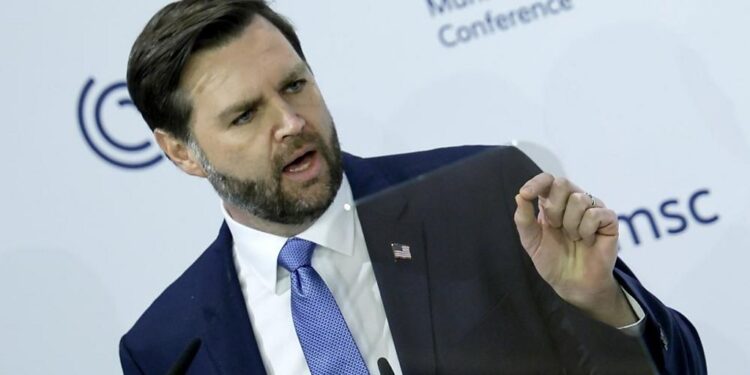At the recent African Petroleum Producers Organization (APPO) roundtable conference focused on “Zero Routine Gas Flaring and Lower Methane Emissions in APPO Oil and Gas Operations,” the Chief Executive Officer of the Ghana National Petroleum Corporation (GNPC), Mr. Joseph Dadzie, underscored the critical need for enhanced environmental stewardship among Africa’s oil and gas-producing nations. His call to action comes amid growing global concerns over climate change and the urgent need to reduce greenhouse gas emissions.
In his address, Mr. Dadzie underscored the critical need for collaborative efforts within the oil and gas industry to advance sustainable practices. He particularly highlighted the importance of addressing gas flaring and methane emissions, both significant contributors to greenhouse gas emissions.
“The industry players have a vital responsibility to protect the environment. The future of the oil and gas sector depends on sustainable and environmentally friendly practices.”
Mr. Joseph Dadzie, Chief Executive Officer of the Ghana National Petroleum Corporation (GNPC)
Mr. Dadzie further elaborated on the strategies employed by GNPC and its Joint Venture partners to mitigate methane gas flaring. He pointed out that the Ghanaian government prioritizes utilizing all produced gas for energy security and industrialization.
A noteworthy commitment from GNPC and its partners is the plan to eliminate methane flaring on the TEN (Tweneboa, Enyenra, Ntomme) field by 2025. This initiative aligns with the broader national and international goals of reducing greenhouse gas emissions and fostering sustainable energy practices.
The APPO conference, organized by Ghana’s Petroleum Commission and APPO, was inaugurated by APPO Secretary General, Umar Farouk Ibrahim. The event served as a platform for member states to discuss and formulate collaborative strategies to address gas flaring and methane emissions challenges in Africa’s oil and gas operations.
The participation of key industry leaders, including Egbert Faibille Jnr., CEO of the Petroleum Commission, and Collins Adomako-Mensah, Deputy Minister of Energy, highlighted the collective efforts in promoting sustainable energy practices.
Mr. Dadzie also highlighted the importance of exploring innovative technologies and establishing lasting partnerships to address the challenges within the African energy sector. By leveraging the insights gained from the conference, GNPC aims to drive advancements in sustainable energy practices and foster a more resilient and environmentally conscious oil and gas industry.

The initiatives and commitments outlined by Mr. Dadzie have significant implications for Ghana. By focusing on reducing gas flaring and methane emissions, Ghana is taking substantial steps toward environmental sustainability.
These efforts will help mitigate the impact of climate change, improve air quality, and promote the health and well-being of its citizens. Additionally, the effective utilization of produced gas for energy security and industrialization is poised to boost Ghana’s energy independence and economic growth.
The conference, organized by Ghana’s Petroleum Commission and APPO, served as a platform for key industry leaders from across Africa to collaborate on strategies to tackle gas flaring and methane emissions.
Moreover, the involvement of GNPC’s team, including Victor Sunu-Attah, General Manager of Engineering; Dr. Baah Nuakoh, General Manager of Strategy & Investment; and Kwesi Krasi Eyiah, Acting General Manager of Research & Data, reinforces GNPC’s leadership in driving a greener future for the oil and gas sector globally.
This initiative not only positions Ghana as a leader in environmental stewardship but also sets a precedent for other African nations to follow suit. By focusing on reducing methane emissions and eliminating gas flaring, Ghana is not only contributing to global efforts to combat climate change but also paving the way for a more sustainable and prosperous future for its citizens and the continent as a whole.




















